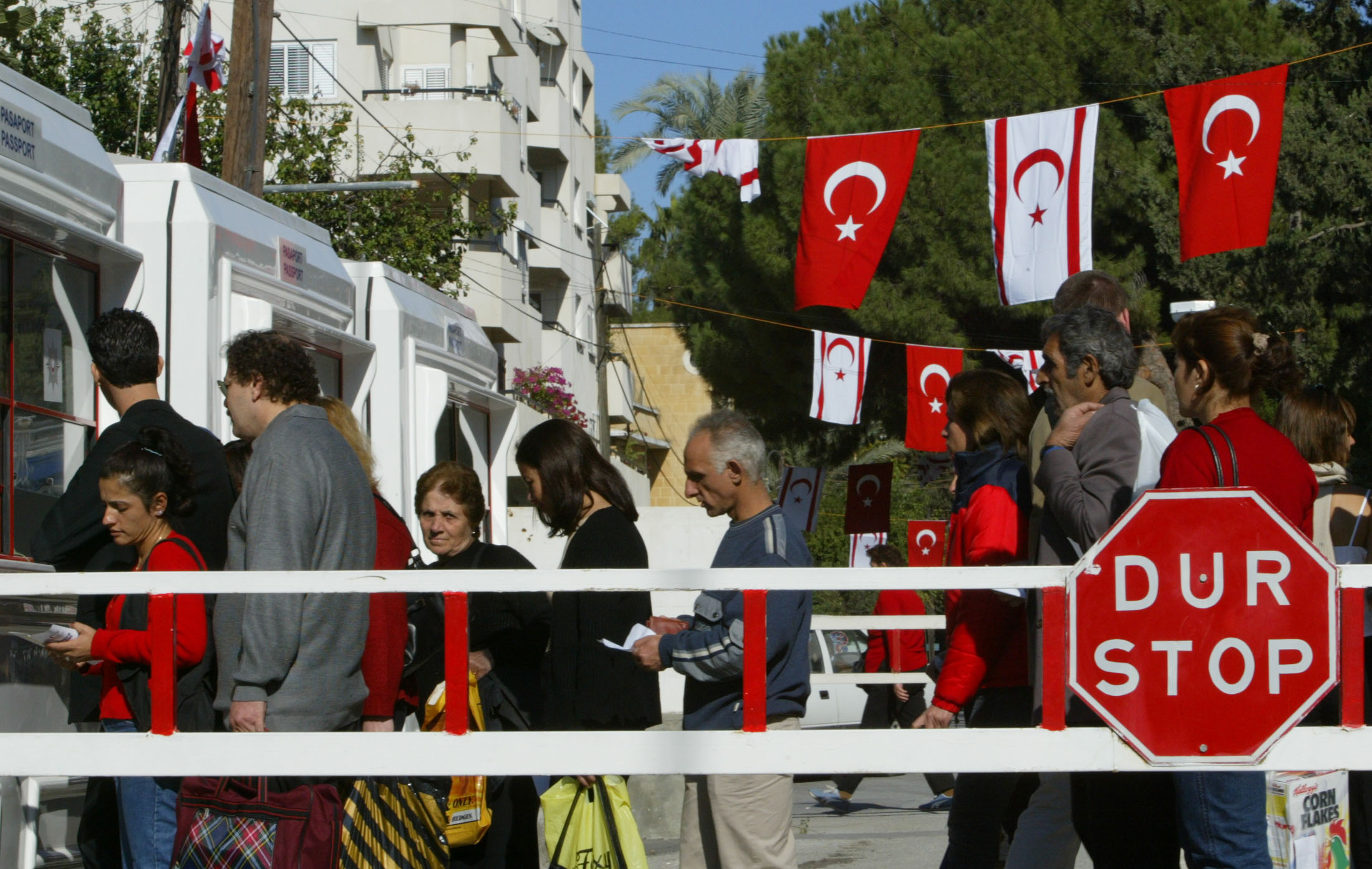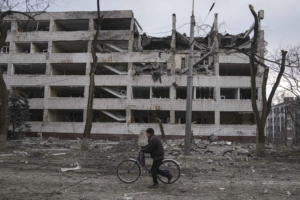Restless on the neighboring island: Fifty years of division, alongside flourishing relations with Israel and increasing regional threats—what does the future hold for Cyprus, and how does the current situation affect its relations with Israel?

In July 1974, the Turkish military intervened in Cyprus in response to a Greece-led coup aimed at deposing President Makarios. Turkey cited the Treaty of Guarantee as justification, de facto dividing the island, and later establishing the Turkish Republic of Northern Cyprus in 1983, which was recognized only by Turkey. Efforts for reunification, including the 2004 Annan Plan, failed due to deep-seated mistrust and political complexities exacerbated by Cyprus’s EU accession. Recent negotiations, such as the 2017 Crans-Montana talks, stalled over security and governance issues, including the continued presence of Turkish troops and Greek Cypriot demands for their withdrawal. Meanwhile, Israel’s relations with Cyprus (and Greece) have thrived since 2010, fostering cooperation in areas such as energy, security, and emergency preparedness. Looking forward, prospects for the future of Cyprus remain unclear, with renewed unity efforts on one hand and Turkish-led efforts to pressure the international community to accept the partition of the island on the other, significantly influencing regional dynamics. Cyprus remains committed to its relations with Israel after the eruption of the October 7th war. Nevertheless, Cyprus faces challenges such as international criticism of the legitimacy of some of Israel’s actions, as well as threats from Hezbollah and Turkey regarding possible Cypriot assistance to Israel in the event of a major escalation. Israel should make efforts, where feasible, to avoid exacerbating these challenges.
On July 20, 1974, Turkey launched a military operation by air and sea against the Republic of Cyprus in response to the coup d’état on July 15, 1974. The coup had been orchestrated by the Greek military junta, which was then in control of Greece, with the aim of deposing the democratically elected president, Archbishop Makarios. Turkey’s primary justification for its military action was based on the Treaty of Guarantee, which was signed on August 16, 1960, by the United Kingdom, Greece, Turkey, and Cyprus. This treaty is a critical component of Cyprus’s constitutional framework. Article I obliges Cyprus to uphold its independence, territorial integrity, security, and adherence to its Constitution. Article II mandates that Greece, Turkey, and the United Kingdom guarantee these principles. Crucially, Article IV permits these guarantor powers to act unilaterally to restore the original state of affairs if joint action proves unfeasible in the event of a breach of the treaty’s provisions. By August 25, 1974, Turkey had assumed control of more than one-third of the island, a situation that continued until November 15, 1983, when the Turkish Republic of Northern Cyprus (TRNC) was declared. Recognized solely by Turkey, the TRNC functions as a de facto state and lacks recognition as a sovereign entity from the majority of countries and international organizations. UN Security Council resolutions 541 (1983) and 550 (1984) both declared the 1983 declaration of independence by the TRNC as unlawful and invalid.
The Annan Plan, introduced by UN Secretary-General Kofi Annan on November 11, 2002, aimed to resolve the Cyprus issue through a comprehensive settlement. The plan proposed a “common state” government with a single international legal personality, responsible for foreign and EU relations. This government structure included two politically equal component states that would manage most day-to-day governmental responsibilities within their respective communities. Negotiations over the next 16 months involved multiple revisions of the Annan Plan to accommodate the demands of both the Greek Cypriot and Turkish Cypriot communities. Significant political changes occurred during this period: Turkish Cypriot leader Rauf Denktaş, known for his hardline stance, was replaced by the more pro-settlement Mehmet Ali Talat as the chief negotiator, while in the Republic of Cyprus, President Glafkos Clerides was succeeded by Tassos Papadopoulos, who was more skeptical of the plan. The situation was further complicated when the Republic of Cyprus signed an accession treaty with the European Union on April 16, 2003, setting to become an EU member on May 1, 2004, regardless of whether a settlement was reached. In 2004, Kofi Annan presented a final revised plan for Cyprus, which was put to referendum on April 24. Despite Turkish Cypriot support, Greek Cypriots rejected the plan by a significant margin, thereby halting the initiative. Annan emphasized the need for Greek Cypriot willingness to resolve the Cyprus problem through a bicommunal, bizonal federation. The failure of the plan was attributed to deep-rooted mistrust, political changes, and the complex geopolitical context, including Cyprus’s EU accession.
For more than ten years after the Annan plan referendum, discussions between the two sides had failed to progress significantly. The Crans-Montana talks, which commenced on June 28, 2017, were convened as a crucial opportunity to advance negotiations on the long-standing Cyprus conflict. Despite initial hopes for progress, the talks quickly stalled over contentious security issues, with both sides reiterating entrenched positions. UN Secretary-General António Guterres intervened on June 30, issuing a set of key points for consideration and urging both parties to develop proposals over the subsequent weekend. However, by July 3, 2017, little movement had been achieved, with Turkey advocating for the retention of security guarantees while offering partial troop withdrawal, and the Greek Cypriots pushing for immediate Turkish troop withdrawal and the abolition of the Treaty of Guarantee. Efforts to bridge the gap faltered, with disagreements extending to governance issues such as the rotating presidency and property rights. Ultimately, on July 7, 2017, Secretary-General Guterres acknowledged the talks’ failure to reach an agreement, signaling the closure of the conference and the need for further assessment.
Throughout the Cyprus negotiations, both sides have claimed varying degrees of convergence on EU affairs, governance, citizenship, and property compensation, although specifics often remain unclear. Key issues include the state structure, where Turkish Cypriots push for two equal founding states, while Greek Cypriots prefer a unified state evolving from the Republic of Cyprus and view Turkish Cypriots as a minority. This minority status complicates mutual recognition and the concept of a rotating presidency, which Greek Cypriots want to favor their side with longer terms. Governance disputes also extend to control over the foreign minister portfolio and external relations, highlighting deep-seated tensions with Greece and Turkey. Property issues remain unresolved, with the Turkish Cypriots’ Immovable Property Commission (IPC) being controversial and underutilized. On the territorial issue, Greek Cypriots aim to reduce Turkish Cypriot control from 37% to about 28%, seeking to reclaim areas like Varosha and Morphou. During the Crans-Montana talks, Turkish Cypriots offered to return part of Morphou but wished to retain more territory than Greek Cypriots were willing to concede.
While the issues above have posed challenges in the Cyprus negotiations, the two most critical stumbling blocks are the security guarantees and the deployment of Turkish troops on the island, both of which have led to the collapse of negotiations between the two sides. The Greek Cypriots have consistently advocated for the complete withdrawal of all Turkish military forces from the island, starting immediately upon the adoption of an agreement. They assert that security guarantees from the United Nations or the European Union would suffice for all citizens across the two constituent states. Consequently, upon the island’s full integration into the European Union, the Greek Cypriots see no necessity for security assurances from third countries like Turkey, Greece, or the United Kingdom. On the other side, Turkish Cypriots and Turkey have persistently contended that the 1960 Treaties of Guarantee and Alliance must be maintained in any resolution. They assert that without these guarantees, Turkish Cypriots would experience insecurity, citing their history on the island in the 1960s. Additionally, the Turkish Republic of Northern Cyprus has granted Turkey permission to take over an air base located in Geçitkale, alternatively known as Lefkoniko in Greek, on the Turkish Cypriot side of the island. This move aims to establish a center for deploying drones and represents a significant escalation in the situation. More and more, there are calls from Turkey and Turkish Cypriots to implement a two-states solution and not attempt to unify the island as was previously suggested.
Looking forward, two main scenarios can be envisioned. First, despite past failures, there may be renewed efforts towards serious negotiations for the unification of Cyprus. Alternatively, as time progresses, and Turkey becomes less inclined to accept the unification of Cyprus, Ankara may push for international recognition of the island’s partition. Turkey may even consider annexing the northern part of the island, although this is unlikely to grant it more freedom of action than it currently enjoys. Both scenarios imply a greater influence of Turkey on developments compared to today.
From Israel’s perspective, the flourishing relations with the Republic of Cyprus and Greece since 2010 have largely resulted from, and partially compensated for, the deterioration in Turkey–Israel relations. The triangular relationship among Israel, Greece, and Cyprus has yielded several benefits. They have facilitated greater cooperation in the Eastern Mediterranean across various domains including energy, security, climate change adaptation and mitigation, and emergency preparedness. While it appears that Cyprus is not reconsidering these relations in the aftermath of the October 7th conflict, there are potential strains that should be acknowledged.
First, Cyprus and Cypriot public opinion are not immune to international criticism of Israel’s actions during the conflict. Cyprus is playing a crucial role in the maritime humanitarian corridor to assist Gaza’s population, but this effort has irked Ankara, as it seems to bolster Cyprus’s importance and is seen as increasing international involvement in the Eastern Mediterranean. Second, Cyprus has received direct threats from both Hezbollah and Turkey not to assist Israel in the event of a major escalation between Israel and Lebanon. Third, the improved relations between Israel, Cyprus, and Greece were also tied to Israel’s normalization efforts with Arab Gulf countries. The war that erupted on October 7th has cooled these normalization prospects, which in turn affects the feasibility of ideas for regional cooperation. Lastly, Cyprus is also affected by the growing influx of Syrian refugees from Lebanon, and a significant escalation between Israel and Lebanon could potentially increase the number of Lebanese refugees arriving at its shores.
While Israel–Cyprus relations have never constituted a military alliance, Israel has viewed a “friendly Cyprus” as a component in its emergency planning. Israel should be mindful of the challenges Cyprus is facing and make efforts, where feasible, to avoid exacerbating them.




